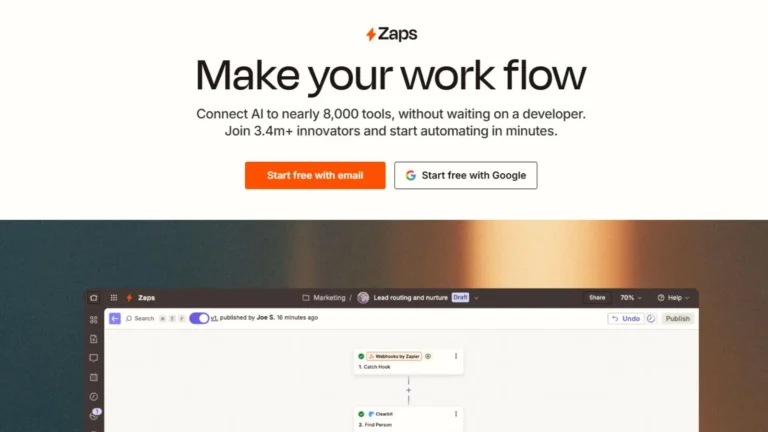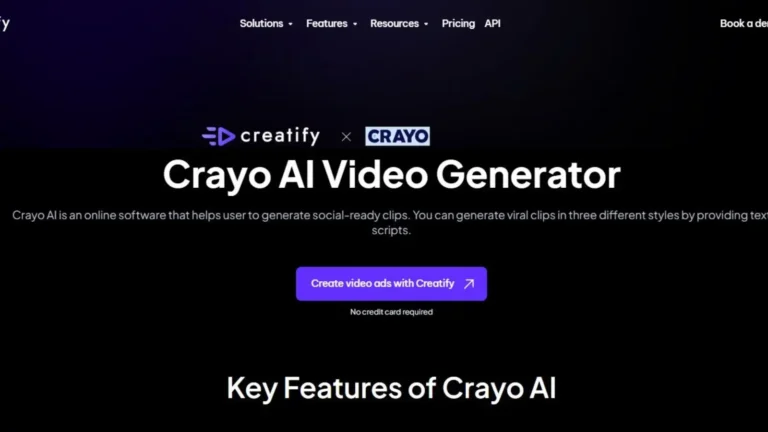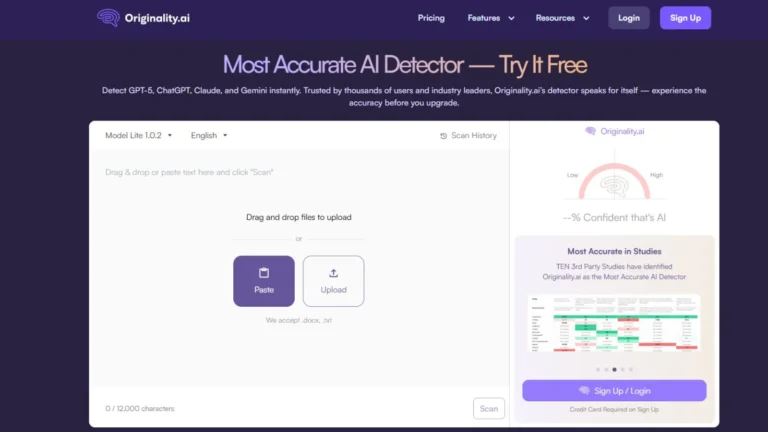Sonantic: The Evolution of Voiceovers: Exploring New Emotional Radius Applied by Artificial Intelligence
Sonantic is revolutionizing the way voiceovers are produced through a service that incorporates AI into the complexity of human voice mapping. Specifically, it aims at allowing the creators and content makers such as game designers and filmmakers to avail expressive and emotion inducing AI generated voices for rending storytelling a completely new dimension by making synthetic and human voiceovers untraceable indistinguishable. Its tools and gimmicks help users create unimaginable storylines that bust the notion of voiceover production.
What Makes Sonantic Unique?
Sonantic is the first text-to-speech tool in the market that can make voiceovers emotionally engaging. The platform unifies state-of-the-art AI technology with user-centric design in order to bring text to life. It allows users to control everything from intonation to emotional tone, giving endless possibilities in producing very engaging and lifelike performances.
Key Features of Sonantic
Human-Like Intonation:
The AI voices from Sonantic actually do justice to the nuances of the human voice. The slight minute alterations in tone and pitch this service employs make voiceovers very convincing and relatable. The end result is a listening experience that feels fluid and genuine from the perspective of the character or the narration.
Hugely Diverse Offerings of Voices
No matter whether it’s for an animated feature, a commercial, or an actual fantasy game, Sonantic is providing its users with the best available voices. Such voices cover most types of character archetypes and are thus always perfect for their projects.
Emotional Depth
It is one of the most astounding features of Sonantic; the application gives a wide range of emotions to express. Users can change the emotional tone of the voice according to the context of their script. Whether it is joy, sorrow, anger, or fear, it delivers such subtle performances that touch the hearts of the audience.
Script Control
Sonantic provides very robust editing tools for a script; hence, one owns the content with full command over it. These help fine-tune pronunciations, pacing, and emphasis, hence enabling producers to deliver every line in a very precise and accurate way.
Advantages of Using Sonantic
1. More Creative
Sonantic provides a new opportunity for creators to experiment with different voices and all kinds of feelings. This platform eliminates factors such as voice actors accessibility and affordability, which enables creators to adjust and innovate based on their situated ideas and even perfect and modify them. This liberty has to make storytelling as vibrant and as interesting as the inspiration behind it.
2. Time-Saving
Traditional voice-over production involves coordinating with schedules, multiple takes, and long post-production edits. Sonantic simplifies the process because it lets users generate high-quality voiceovers almost in an instant. This streamlined workflow saves time on voice production; hence more space for other aspects of a project by the creators.
3. Cost-Effective
It’s always costly to hire professional voice artists, even more so when you’re handling a large number of lines or characters. It is cheap, yet is capable of producing great results that will make the client proud. However, thanks to AI it is a flexible solution that can be applied to any scale of the project, from indie to large scale.
4. Flexibility
It proves its adaptability as one versatile tool for various applications. The adaptation from video games and animated films to virtual reality experiences and audiobooks creates a scope of it all coming together into a very comprehensive medium.
Limitations of Sonantic
It may have some limitations even though it is very effective at being an artist’s tool. The following list may reflect some of these for your ready reference and management.
1. Limitations in Nuance
While Sonantic uses the best of technologies it sometimes does not get the finer details of human feelings. Sophisticated and nuanced emotional contexts may reveal to the viewer possible shortcomings of the artificial intelligence application, in the sense that it performs under the direction of the script-writer and director, it is only an ‘artificial’ actor.
2. Dependency on script quality
The quality of the output of Sonantic depends on the quality of the input script. A bad or poorly formatted script leads to a low-quality performance. To have the best performance, users should spend some time writing and perfecting their dialogues.
3. Internet Requirement
Being a cloud-based platform, it only works with a stable internet connection, so users can get in and out of access for using it. Dependability on connectivity can therefore present a limitation to areas or use by users who require working offline.
Future of AI-Driven Voiceovers
It is a giant leap ahead in voiceover production; this integration of advanced AI with user-friendly tools is pushing new benchmarks for synthetic speech. The more time the technology is developed, the greater will be the subtleties and emotional depth of these voices as compared to any human performance.
For any creators, game developers, or filmmakers who value its partnership in telling the story, the Sonantic will be of priceless value since it can easily save a great deal of time and money while inspiring creativity in pursuit of groundbreaking voices.
Whether it’s for a motion picture, a deeply immersive video game, or just an audibly thrilling audiobook, Sonantic provides tools to tell your stories and make them unforgettable. Through innovative emotionality, Sonantic is no longer just making voice-overs a completely different business but changing the storytelling itself as well.




